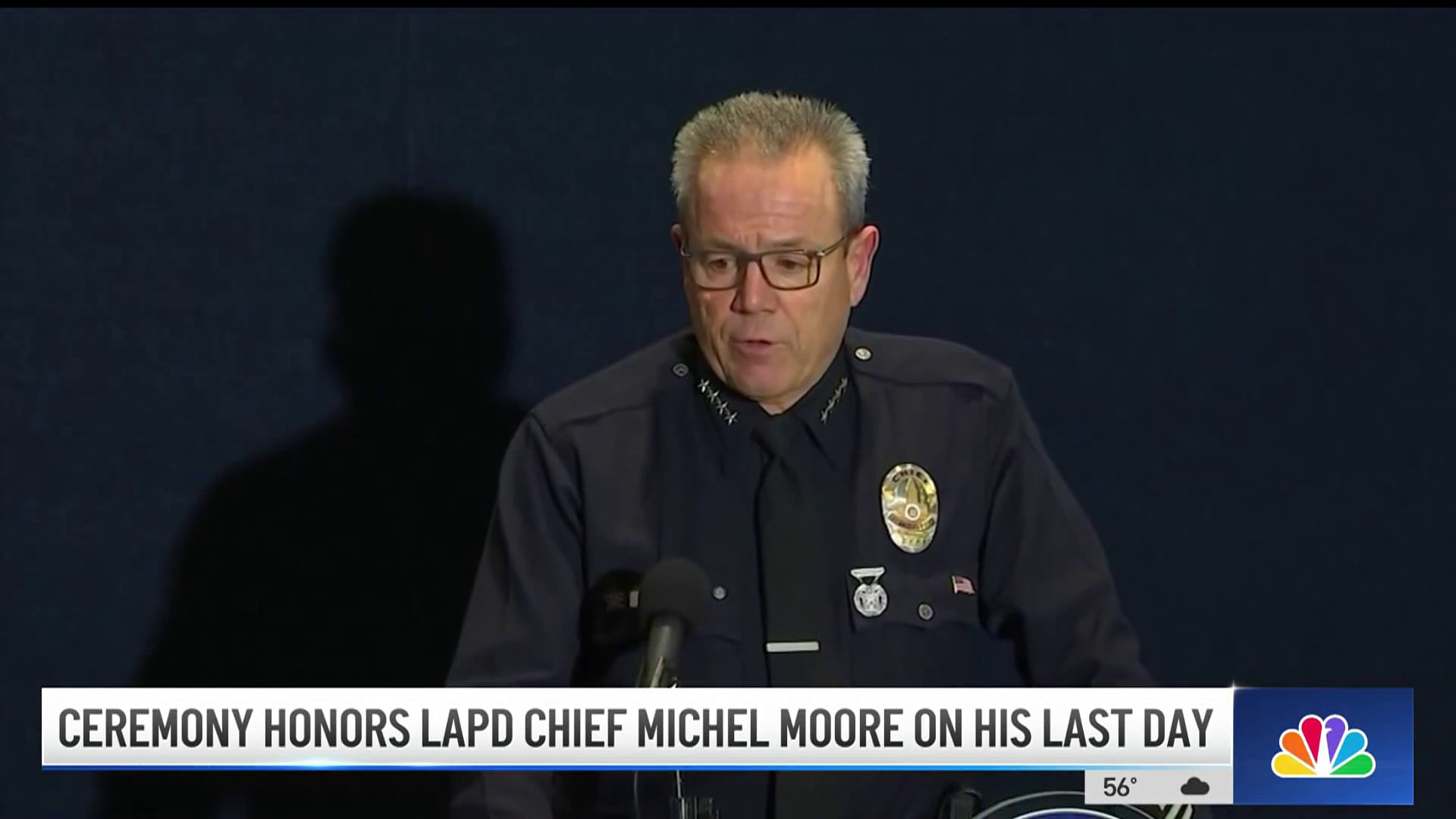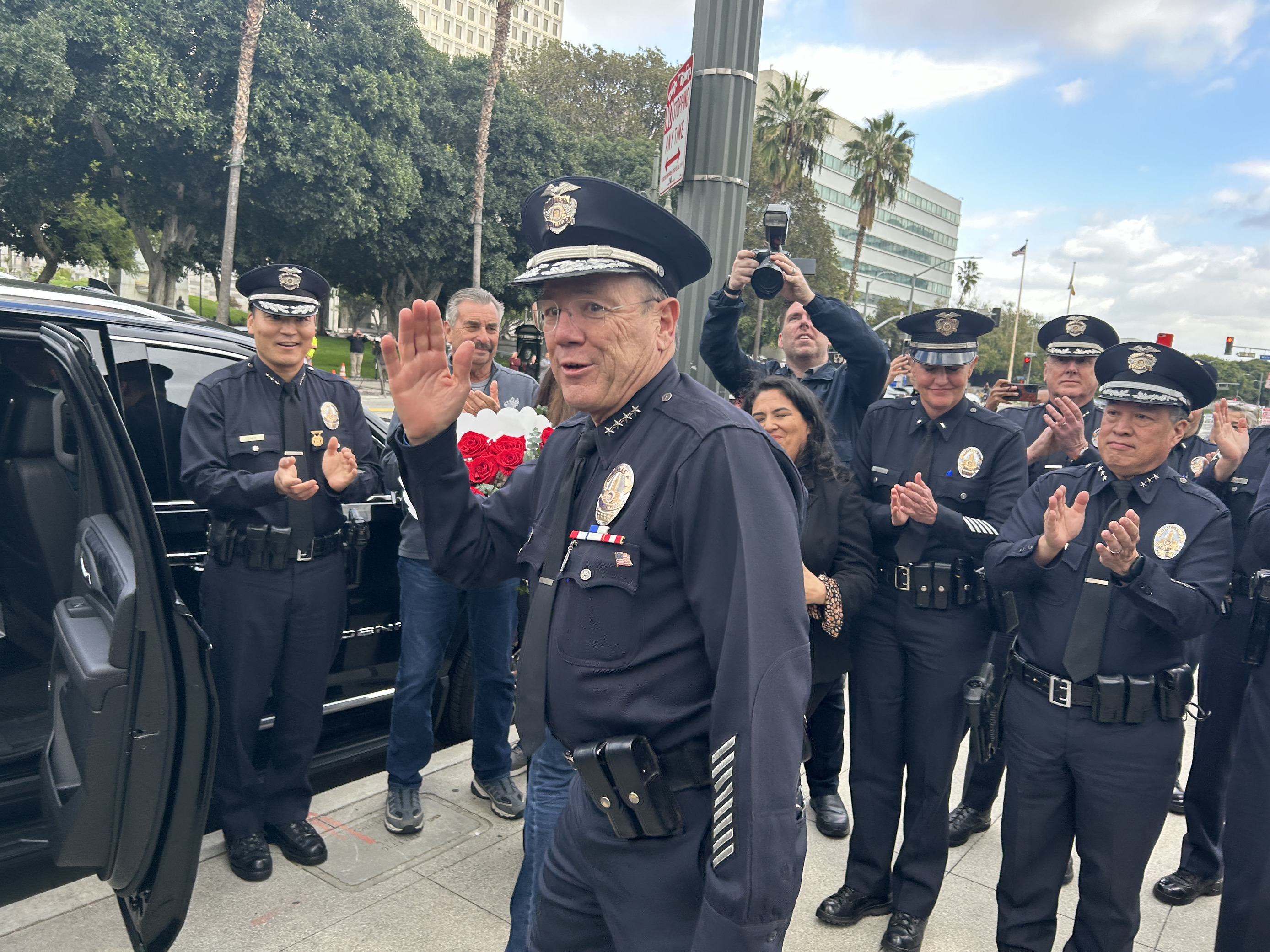Going down in the history books as the first Asian American to lead the Los Angeles Police Department was never part of Dominic H. Choi’s plan.
The Los Angeles native, who grew up in Orange County, had initially gone into accounting after graduating from USC and quickly realized he wasn't passionate about his profession in finance.
“I didn’t enjoy what I was doing. It wasn’t rewarding,” Choi said. “I had a conversation with my brother about quitting accounting, just traveling for a year and getting to figure out what I wanted to do. And he happened to give me a phone number.”
That turned out to be the LAPD hiring number. Several months later, he graduated from the LA Police Academy and became an officer.
Get top local stories in Southern California delivered to you every morning. Sign up for NBC LA's News Headlines newsletter.
Choi said, at first, his immigrant parents were surprised by his decision to join the LAPD.
“Historically, law enforcement isn't considered a profession or a prestigious type of career or job. Obviously in the Asian community, [being a] doctor, lawyer, those types of things are what they're looking for,” the interim chief explained. “But as I continued to promote, they understood what I was doing. I think that enlightened them.”

A son of immigrants
Choi was sworn in March as the interim chief of Los Angeles Police Department a day after Michel Moore's retirement. His father pinned his badge on his uniform during the swearing-in ceremony.
“It's not that I do all this stuff for [my father] or my parents,” said Choi, who explained he decided to step up to fill the leadership gap within the department until the next permanent chief of police is chosen. “But to see the byproduct, to see my parents so happy, to hear about his friends calling him and congratulating him, it meant the world to me.”
Choi said while he never had long-time plans, including numerous promotions within the LAPD, he allowed his work ethic and actions to speak for themselves.
“I think a lot of it has to do with my upbringing, the way my parents raised myself and my siblings,” he said. His mother, who owned a wig and beauty supply store, worked into her 70s as his father retired in his 60s after working for car dealerships in the Crenshaw neighborhood.
“Seeing them work so hard day in and day out just to raise us and provide for us – I think it clearly established that work ethic for me,” the police chief explained.
Joining LAPD 3 years after LA Riots
Choi was an accounting major at USC when he saw countless Korean American businesses being burned down and looted in 1992.
Although he said the Riots didn’t have any bearing on pursuing a career in law enforcement, he said he understood the historical and cultural context behind why early immigrants from Asian nations may have been reluctant to trust law enforcement.
“Being resistant to calling the police – a lot of it was a language barrier,” Choi explained. “Asians generally don't want to be bothersome. They want to be more polite and respectful, and maybe calling the police was being bothersome, but I've seen that completely change.”
He said he tries to engage other immigrant communities so even those new to the country would feel comfortable calling the police for help.
“There's no mystique in this department. We're open. We're transparent. We're welcoming, and we're here to help,” he said.
Experiencing anti-Asian hate
Choi, even as he moved up the ranks of the LAPD, he said he faced hurtful comments toward Asian Americans, especially during the coronavirus pandemic when he was in charge of the department’s Office of Support Services.
He said while he was leading the department’s effort to get more people vaccinated against the virus, there was “a lot of discussion about race.”
“[People said,] ‘if somebody didn’t fly over here, then we wouldn’t have this problem.’ Those are hurtful. Those comments do impact me and any of this look,” Choi explained. “But it didn't stop me from doing my job. It didn't stop me from moving forward and staying positive.”
When it comes to racial bias at workplaces, including the LAPD, Choi offered advice to other AANHPI community members.
“Don’t let that noise get in your way,” the police chief urged. “If you let that stop your forward progress, you're creating your own barrier. Address it or find a way around it, but just continue to move forward.”
Choi said all officers are continuously trained on hate crimes and incidents as the department expanded its online reporting for hate incidents.
But the biggest challenge is the AANHPI culture, he said.
“Not wanting to call the police or involve the police – that's where we still need to advance or make progress.”

Girl dad
While some Korean or Asian families had traditionally preferred to have sons, Choi, who has three daughters, said he never felt that he needed a son.
Choi said all his children inherited his work ethic he got from his immigrant parents. One of his daughters is a CPA, and another is preparing to become a medical doctor while the youngest is still in college.
"I think them seeing my work ethic and my success has really driven them in what they do and how they want to excel,” explained the proud father, who believes one’s career choice shouldn’t been influenced by his or her parent – even if her father is leading one of the largest police department in the country.




